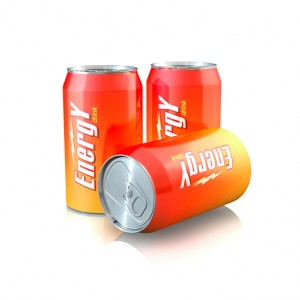Energy Drinks, How Healthy Are They?
 No, there is no chance that anyone is going to ban Red Bull, Rock Star, Monster or any other properly made and packaged energy drink. Why not? Because energy drinks are perfectly legal, widely used and generally safe. About half of young adults in the US take the drinks more or less regularly. Also, no government anywhere or doctors association has recommended such a drastic intrusion into a citizen’s right to drink packaged energy.
No, there is no chance that anyone is going to ban Red Bull, Rock Star, Monster or any other properly made and packaged energy drink. Why not? Because energy drinks are perfectly legal, widely used and generally safe. About half of young adults in the US take the drinks more or less regularly. Also, no government anywhere or doctors association has recommended such a drastic intrusion into a citizen’s right to drink packaged energy.
But, according to the Substance Abuse and Mental Health Services Administration, emergency hospital visits associated with energy drinks complications are increasing. Fast. Between 2007 and 2011, for instance, they doubled.
And the American Academy of Pediatrics recommends that children and adolescents should never take energy drinks. Actually most doctors caution anyone against taking more than the occasional energy drink – and, if they could, would probably ban the use of energy drink in combination with alcohol, other stimulant or medication.
So, what’s with energy drinks?
It’s The Caffeine Not the Energy Drink
The thing about energy drinks is that they are, in fact, made more of concentrated caffeine than anything else. That is the same stuff that is in coffee, tea, cola soda and chocolates. Some energy drinks substitute or complement caffeine with guarana and ginseng, but both are stimulants that are not much different, health-wise, from caffeine.
There is nothing wrong with caffeine, of course. It is a stimulant that people have used for ages and it does boost energy. It increases the heart rate and blood pressure, which heightens concentration and alertness. If you need not to sleep for whatever reason, a mug or two of good coffee or a can of energy drink should do the trick.
The catch is that caffeine is addictive. Plus, energy drinks have as much as five times the concentration of caffeine as your average soda. They are also not regulated by the US Food and Drug Administration (FDA), because they are sold as ‘dietary supplements’ rather than beverages. The result is that, despite what you see on the can’s label, you really don’t know how much caffeine you are taking and what else is in the mix.
What Energy Drinks Do To Your Body
Bottom line is that energy drinks do what any excessive coffee or any other stimulant would do to your body. It pushes your heart rate and blood pressure up, which is fine most of the times but can be dangerous, especially if you already have some medical conditions or you are on medication. Or you are simply not sober. Some medical conditions, like heart defects are not detected early, if ever, and lots of medications react badly to a high dose of stimulants.
Alcohol, on the other hand, is a depressant while energy drinks are stimulants. A combination of the two plays tricks with your mind. You are still as drunk as the amount of alcohol you have taken, which means your physical reaction rate, mental alertness, and clarity of judgment are impaired. But you ‘feel’ better, alert, in control, not as high as the bill suggests. The effect is that you could get a very nasty surprise if you tried to drive, cross a busy street or even walk upstairs. Or you could land yourself in something worse than a nasty surprise.
What to do then? It’s fine to take the occasional energy drink. It’s just tough- we love coffee, after all, and it tastes good. But do not use it habitually. Or when you are drinking alcohol or while you are on any medication. Do not take it while exercising because exertion is already causing havoc on your heart rate and blood pressure. Also, don’t shock your body by gulping down an energy drink or taking more than a couple of cans in one seating.
As with all other things, take in moderation.
Sources:
http://www.scai.org/SecondsCount/Disease/detail.aspx?cid=135410fb-a293-43e0-82c6-ec0bcc47125f
Guest Post by Jonah Njonge
You must be logged in to post a comment.